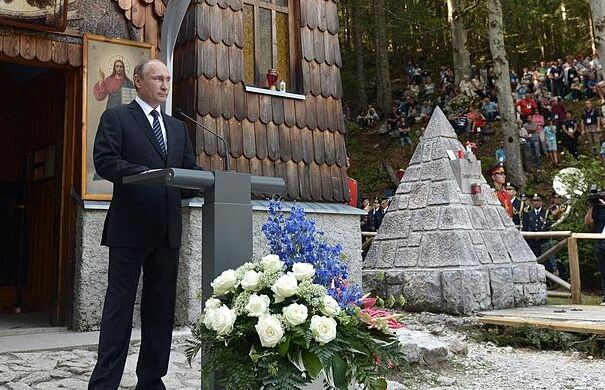The United States and the United Kingdom accuse Russia of preparing to invade Ukraine, while Moscow claims Kiev plans to launch a large-scale military offensive against pro-Russian forces in the Donbass. At the same time, Washington and London are reportedly withdrawing diplomats’ families from the Eastern European country and continue to deploy troops to neighboring nations to ensure a potential conflict does not widen into a regional war.
Unlike the West, Ukraine does not seem to be too worried about the Russian military buildup near its borders. According to Alexey Danilov, the secretary of the country’s National Security and Defense Council, there is no reason to panic. Ukraine’s President Volodymyr Zelensky, on the other hand, said that Ukrainian intelligence has learned to effectively counteract external aggression. He believes that it is time to move on to offensive actions to defend national interests.
“Our citizens are united in wanting their territory returned”, Zelensky stressed.
His statement can be interpreted as an announcement of an imminent military offensive in the coal-rich Donbass region in Eastern Ukraine. The Kremlin warns that the risk of the Ukrainian Armed Forces “staging provocations” in the Donbass is now higher than before. Does that mean that a large-scale war in Eastern Europe is now just a matter of time?
It is not a secret that Russia has been building up troops and military equipment near the Ukrainian border for months. The core of the Russian units have been deployed to central and southern Belarus, as well as to Western Russian regions of Bryanks and Kursk, which suggests that Moscow could be planning to seize the Ukrainian capital city of Kiev. Such an operation, however, is expected to only take place if Ukraine attempts to resolve the Donbass conflict by force. More importantly, the Kremlin is unlikely to start any military actions until it gets the green light from Washington.
The United States President Joe Biden’s recent statement that Russia may not be heavily punished for a “minor incursion” into Ukraine could mean that the Kremlin and its American partners have already made some sort of behind-the-scenes deal. Some Western powers, including the US and the UK, have already openly announced that they will not send troops to Ukraine, which means that the Eastern European country will have to fight against Russia on its own. Still, the West continues to supply Ukraine with modern anti-tank missiles, and the British Prime Minister Boris Johnson believes that a Russian invasion of Ukraine will lead to numerous casualties on the Russian side and “may become a new Chechnya” for Moscow.
The longer Moscow waits, the more sophisticated weapons Ukraine will get.
It remains unclear if Johnson had in mind the First or the Second Chechen War, given that after the armed conflict in Chechnya in 1999, Russia effectively established control over the turbulent region. Although Ukrainians are not Chechens, and are unlikely to fanatically fight until their last breath, they are expected to inflict heavy losses on the Russian army. Time is definitely not on the side of Russia. The longer Moscow waits, the more sophisticated weapons Ukraine will get. That is why the United States reportedly aims to drag out negotiations as long as possible and the Kremlin, unless seriously provoked, is not likely to dare to attack Ukraine.
Russia even hesitates about recognizing the self-proclaimed Donetsk People’s Republic and Lugansk People’s Republic. Although the Russian Parliament (Duma) was scheduled to discuss the status of those entities on January 24, the Duma Council decided to postpone it until February. But even if the proposal, initiated by the Communist Party, is ratified by the Duma, it has to be approved by President Vladimir Putin. He can, theoretically, refuse to recognize the Donbass republics, explaining that the Minsk Agreement – signed in the Belarusian capital in 2015 – has no alternative. Such a move would also be a signal to the West that Russia is ready to continue talks on Ukraine. At the same time, it would be a threat that the Kremlin is ready to recognize the self-proclaimed republics in case the US and its allies eventually push Ukraine into a military campaign in the Donbass. But even then, sanctions will be taken out against Russia and its population is expected to suffer.
Even though the war has not yet started, Russia is already facing a dramatic slide in the value of the ruble. Severe sanctions that the West intends to impose on the Russian Federation will undoubtedly have a serious impact on the Russian economy. But Russian policy makers have put their country in a very difficult position: if Moscow backs down, it will look weak and humiliated; if it invades Ukraine, Russia will suffer sanctions that could lead to economic disaster.
Thus, the Kremlin’s room for political maneuvers is rather limited. That is why Russian officials, at least for the foreseeable future, will continue to hold useless summits with their Western partners, even though both sides are quite aware that chances of reaching a diplomatic solution to the Ukraine crisis are very slim.

